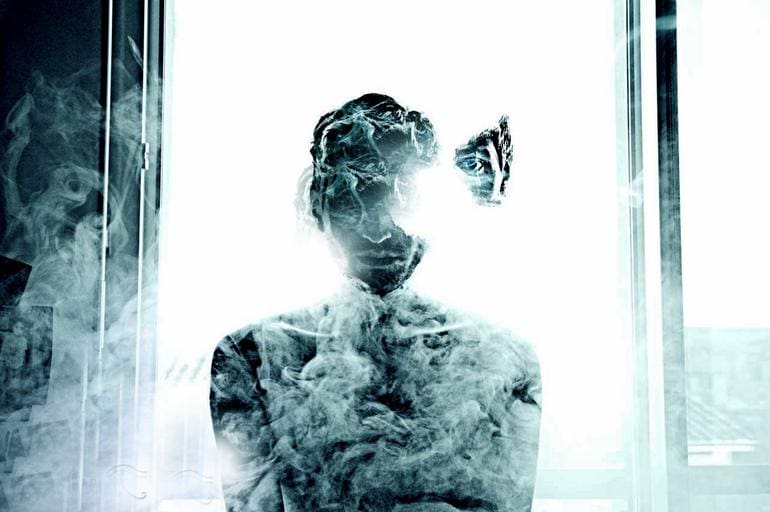“The purpose of Compassionate Inquiry is to drill down to the core stories people tell themselves – to get them to see what story they are telling themselves unconsciously; what those beliefs are, where they came from; and guide them to the possibility of letting go of those stories, or letting go of the hold those stories have on them …
That’s what Compassionate Inquiry is.” ~ Dr. Gabor Maté
Throughout the years of working with patients, Dr. Gabor Maté discovered that no issues, such as emotional or physical, are separate from a person’s life experience and that diseases and health conditions are interrelated and tied to their emotional lives.
Through the process of listening to his patients Dr. Gabor Maté knew instinctively and intuitively that teaching Compassionate Inquiry was his life path. Compassionate Inquiry requires the practitioner to be fully present for their clients and patients.
“Within all of us there is a healing force, a healing power, a healing capacity that is always attempting to heal. So the question is how to promote that within the physical body and in the healing process” ~ Dr. Gabor Maté ~
Dr. Gabor Maté stresses that the amount of safety (or connection) a client/patient feels around their practitioner is directly related to their healing process. By showing up for a client/patient with an “unconditional determination to understand them and work with them in a very authentic and non-judgmental way” will help promote the inner healing process and the body will naturally follow suit.

Compassionate Inquiry
Through the Compassionate Inquiry process, Dr. Maté teaches people how to reconnect with themselves by finding out what is in the way of that connection. He states that through the many challenges of life, people slowly start to separate from themselves. The Compassionate Inquiry process is about constantly checking in with yourself and seeing where your life story and self perceived judgment is getting in the way of your authentic truth.
“The first and only step in this process is to recognize where one is disconnected from themselves in the present moment in order to bring themselves back to their inner truth and authenticity”. The primary intent is to get the practitioner/doctor/guide/coach to learn more about themselves and their own nature by looking at what is in their own way in order to be fully present with their clients or patients.
Every chronic issue is related to some childhood trauma. Diseases such as MS, Depression, ADHD, Addiction, Chronic Autoimmune Disease all have a traumatic template. The disease is only the symptom of the experienced trauma. Most conditions that are based in biological symptoms are treated with medication instead of finding the root cause. The essence of the Compassionate Inquiry process teaches us that the truth is located within the self but blocked because we aren’t asking the right questions.
“People with chronic disease are mostly suffering from issues that are related to early childhood trauma and have not worked out the trauma which, as I said, is the root cause of most diseases. People can actually heal physically through personal transformation. Conventional medicine is behind the times. The body and mind are not separated, it’s all one system which also means that when you recognize that your emotions have a say in what happens in your body, you can then heal your body”.
Trauma isn’t what happens to you, it’s what happens inside your body during the traumatic event.
Symptoms have a characteristic of their own. It has a process which is so ingrained that it has the potential of manifesting in our lives. So if you change aspects of your life and how you think, you can actually change the original diagnosis.
Medicine focuses on symptoms not on life belief systems, traumatic events, and tensions.
Trauma is a physiological wound. Trauma isn’t what happens to you, it’s what happens from the internal wounds caused by trauma, primarily experienced from early childhood. These trauma’s and wounds were needs that weren’t met as a child. Some of the basic needs such as love, rest from any inappropriate stresses (children shouldn’t have to look after the emotional needs of the parent), children need to feel all their emotions and express all of their emotions, when this is denied or suppressed by the adults around them, it will cause a form of trauma which will present in some form as the child grows into its later years.
Wounds go in 2 directions:
- If someone touches on a past trauma or wound, it will most likely trigger you into feeling hurt, angry, insulted, etc. Triggers generally are your interpretations of what you think was said which can create negative emotions that tend to ignite, then explode, and you’re the one carrying the trigger, not the person or situation that triggered you.
- A wound that forms scars – internally you become numb, you stop growing emotionally, or physiologically, so you end up with a distorted view of the world.
Trauma disconnects you from yourself because you don’t have an escape route, especially if you are a child without the ability to quickly respond to a fight or flight response, so you jump out of your body and choose not to feel, it’s about tuning out. When people get stressed the healthy option is to defend themselves, another healthy option would be to walk away (fight or flight). Children can do neither, so they tune out. This shows up later as ADHD. This is also when belief systems start to develop and we start believing that we are not good enough, not deserving, unlovable, etc. This is where Compassionate Inquiry comes in.


Dealing with your trauma will allow you to deal with your health
By asking the right questions in a compassionate way we can get through to our past trauma and begin to reconnect with our emotional and physical body. Dealing with your trauma will allow you to deal with your health.
One of the ways for dealing with your trauma is looking at how grief shows up in your life and how it impacted you. Where it’s showing up and how it’s showing up and affecting you. Then asking questions such as:
- What is your relationship with grief?
- Is it ok to experience grief?
Grief is like a wave, it goes out and comes in, ebb and tide. It’s not trauma but a very natural thing and natural human emotion and response.
- In your daily life how much attention do you pay to yourself?
- What part of you is reluctant to get help?
- What is the resistance?
Paying attention is about doing simple things like paying attention to body parts that need attention. Ie – heartbeat, paying attention to your heart beating too fast, your back hurting, etc. Then giving it some quiet attention. We are very neglectful of our bodies or to help ourselves when the need arises.
Dr. Gabor Maté delivers a profound and eye opening interactive workshop on Compassionate Inquiry which leaves us all in deep reflection while considering our own personal hidden stresses, how we react to personal dilemmas, and contemplating what lies beneath the different masks we wear and have become so comfortable with. Along with how to liberate ourselves from behaviors dictated by unconscious childhood traumas that do not serve us any longer. He dives deeply into the idea and understanding that the truth is within ourselves, and how our perceptions of life’s events may somehow be distorted.
Profound questions were asked by many of the participants who were all eager to discover more about our personal dynamics that elicit predictable yet unhealthy behaviors and how we conduct ourselves in our lives and relationships, both interpersonal, and with our family members and friends.
Dr. Maté’s interactive workshop based on developing awareness, compassion and introducing new sets of tools for the process of healing that is more effective, is a gem unto itself and not to be missed. It is no wonder he is such a highly regarded and sought after teacher, speaker, and guide.
A renowned speaker, and bestselling author, Dr. Gabor Maté is highly sought after for his expertise on a range of topics including addiction, stress and childhood development. Rather than offering quick-fix solutions to these complex issues, Dr. Maté weaves together scientific research, case histories, and his own insights and experience to present a broad perspective that enlightens and empowers people to promote their own healing and that of those around them.
Dr. Maté presented a experiential and participatory workshop on Compassionate Inquiry for our Guidely Community. You can access the replay through the Guidely Community app.
Learn more about Dr. Gabor Maté and Compassionate Inquiry on his website.






